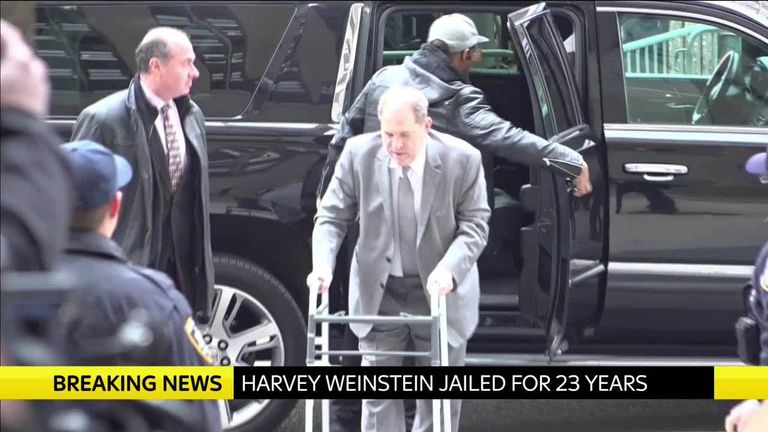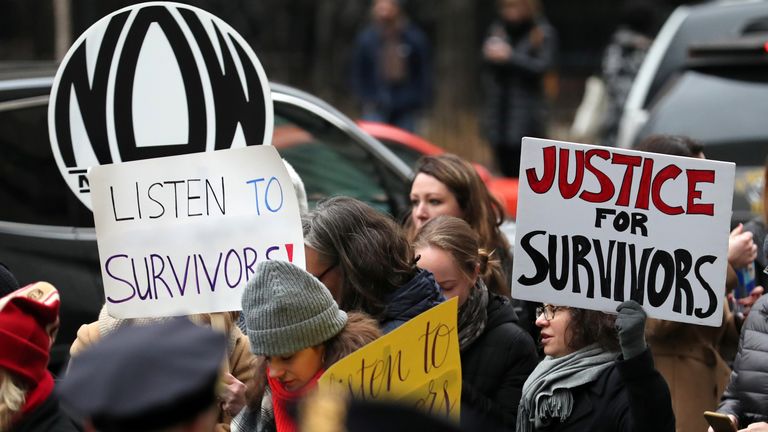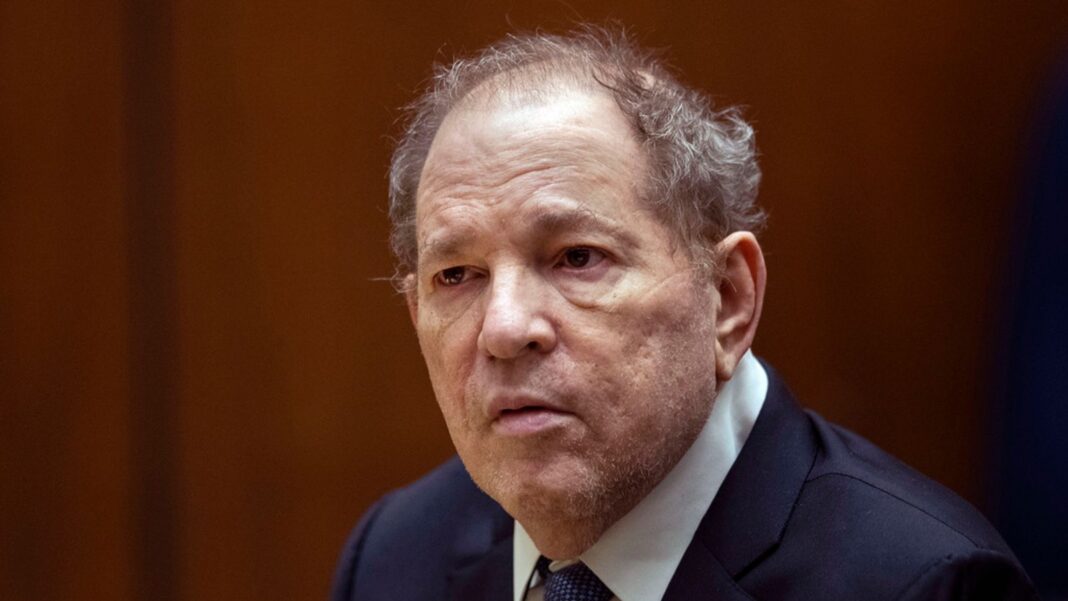A New York court has overturned Harvey Weinstein’s 2020 conviction for rape, ordering a new trial in the landmark “MeToo” case.
The state’s highest court found the judge at the trial prejudiced the ex-movie mogul with “egregious” improper rulings, including a decision to let women testify about allegations that were not part of the case.
In a 4-3 decision, it was decided Weinstein had not received a fair trial, with the court’s majority saying it was “an abuse of judicial discretion to permit untested allegations of nothing more than bad behaviour”.
One of the judges who voted against the decision, Judge Madeline Singas, said the majority was “whitewashing the facts to conform to a he-said/she-said narrative”.
She said the Court of Appeals was continuing a “disturbing trend of overturning juries’ guilty verdicts in cases involving sexual violence”.
Ms Singas added: “The majority’s determination perpetuates outdated notions of sexual violence and allows predators to escape accountability.”
The ruling by the Court of Appeals will mean a painful chapter in reckoning with sexual misconduct by powerful figures looks likely to be reopened.
It was an era that began in 2017 with a flood of allegations against the film producer dating back to the 1970s.
Read more: Harvey Weinstein: The fall of the king of Hollywood
Weinstein‘s accusers could again be forced to relive their traumas on the witness stand.
The 72-year-old has been serving a 23-year sentence in a New York prison after being accused of sexually assaulting ex-production assistant Mimi Haleyi in 2006 and raping former aspiring actress Jessica Mann in 2013 following the landmark 2020 trial.
However, he will remain behind bars as he was also sentenced last year in Los Angeles to 16 years in prison for raping and sexually assaulting an actress in a Beverly Hills Hotel.
The Los Angeles conviction is not affected by Thursday’s decision in New York.
Manhattan district attorney Alvin Bragg – who is already involved in a hush money trial against former president Donald Trump – will now decide whether Weinstein will receive a retrial.
A spokesperson for Mr Bragg said in an email: “We will do everything in our power to retry this case, and remain steadfast in our commitment to survivors of sexual assault.”
Weinstein will remain in prison with a separate LA conviction still standing. Pic: Reuters
Please use Chrome browser for a more accessible video player

1:53
Weinstein sentenced to 23 years in 2020
Douglas Wigdor, a lawyer who represented eight of Weinstein’s accusers said Thursday’s decision was a “major step back in holding those accountable for acts of sexual violence”, adding: “It will require the victims to endure yet another trial.”
Arthur Aidala, a lawyer for Weinstein, said the decision was a victory for the defendant and any American charged with a crime, “no matter how popular or unpopular they are”.
Once considered the most powerful man in Hollywood, Weinstein was accused by dozens of women claiming he bullied, pressured, coerced, or overpowered them while demanding sexual favours.
Gwyneth Paltrow, Salma Hayek, Lupita Nyong’o and Ashley Judd were some who accused Weinstein of sexual harassment, while actresses Asia Argento and Rose McGowan were among others who accused him of raping them.
He was also accused of reaching settlements to keep the stories quiet.
Weinstein had admitted his behaviour had “caused a lot of pain”, but has maintained his innocence throughout, saying any sexual activity was consensual.
The glut of allegations sparked #MeToo, a movement where alleged victims of sexual assault increasingly publicised their experiences, and many came forward against high-profile figures, especially in the entertainment industry.

The #MeToo movement led to other victims speaking out. Pic: Reuters
Some states, including New York, California and New Jersey, responded to the campaign by passing laws that let women bring civil lawsuits seeking damages for sexual misconduct that occurred many years earlier even if the time limit had already passed.
But the stunning reversal of Weinstein’s conviction is the movement’s second major setback in the past two years after the US Supreme Court refused to hear prosecutors’ pleas to undo Bill Cosby’s 2018 sexual assault conviction that was overturned in 2021.

Keep up with all the latest news from the UK and around the world by following Sky News
Weinstein co-founded the entertainment company Miramax in 1979 whose hit movies included Pulp Fiction, Flirting With Disaster and Shakespeare In Love.
He was ousted from his now-defunct firm, The Weinstein Company, in 2017 after the New York Times reported nearly 30 years of rape and sexual harassment allegations against him.







